This review has been long in coming, especially since I read an ARC for
Control back at the end of 2013 a month or two before the book released in December 2013.
Anyway, I did always mean to write something, especially since the author, Lydia, is one of our first online-blogging friends. It also seems appropriate now to highlight a book by an Asian American author in light of the We Need Diverse Books campaign and because May is Asian-Pacific American Month.
So, here we go!
CONTROL by Lydia Kang
Disclaimer: Borrowed the ARC from a friend, and as I mentioned above, we are online friends with Lydia. So, we like her a lot, but this review will be fair and honest to the best of our abilities.
PROS: Interesting world building; intriguing cast of characters; actual science in the science fiction; development of different kinds of relationships (familial, romantic, platonic, etc.)
CONS: Pacing plateaus for a bit; heavier subject matter insufficiently addressed; standard "bad guy" villain(s)
Intellectual Rating: 6/7 out of 10
Emotional Grade: C+
Goodreads blurb:
When a crash kills their father and leaves them orphaned, Zel knows she needs to protect her sister, Dyl. But before Zel has a plan, Dyl is taken by strangers using bizarre sensory weapons, and Zel finds herself in a safe house for teens who aren’t like any she’s ever seen before—teens who shouldn't even exist. Using broken-down technology, her new friends’ peculiar gifts, and her own grit, Zel must find a way to get her sister back from the kidnappers who think a powerful secret is encoded in Dyl’s DNA.
A spiraling, intense, romantic story set in 2150—in a world of automatic cars, nightclubs with auditory ecstasy drugs, and guys with four arms—this is about the human genetic “mistakes” that society wants to forget, and the way that outcasts can turn out to be heroes.
-----
Even though science fiction is not an easy sell for me (it takes some convincing for me to venture into the genre), I looked forward to this book. The premise was promising, and knowing Lydia's background in medicine, I was curious to see how that knowledge would translate to the future-science of the world of CONTROL.
On that front, the book is a success. The few YA scifi books and many more sci-fi-flavored books (e.g. all those dystopians) I've read have more often than not given me pause when it comes to the more science-y aspects of their world-building or plot points - and this despite my not being a science geek myself. Sometimes, science-based explanations or plot points would make me question their plausibility and logic. Not so with CONTROL! It was cool to have that solid scientific basis for the plot points and world-building involving mutations and gene manipulation. Plus, the science actually felt like an important part of the book instead of just window dressing. Like plot-related science aside, I loved how Kang showed how scientific and technological advances might affect other aspects of society - like entertainment! She gives us downloadable scents and night clubs with special rooms just for experiencing specific kinds of sensations - thanks to the help of airborne drugs. The club scene is one of the most dynamic and delirious sequences in the book! Kang takes "feeling the music" to another level.
Speaking of science and geekery, it was cool too to have the main character Zelia be really into science. And it was nice that the text
shows us that. Zelia clearly knows her stuff, and the way she reacts to being in a lab and the way she describes things (and even her jokes) show us that this is her passion. Yes, some of the science-based descriptions or jokes were a little corny, but I liked them because I think it gave Zelia character and even she was aware at her nerdiness.
This does bring me to one of the bigger issues I had with the book though, and that's also Zelia. Generally, I like her! Like I said, I love that she's smart and passionate about science. She's also protective of her family, and I really appreciated that her main emotional motivators in
Control have to do with her sister Dyl and her father. But I had trouble fully connecting with her, despite her obvious distress over her sister's well-being and her admirable tough attitude when it came to the many changes in her life. I think it didn't help that while Zelia's main drive is to save Dyl, I don't really know Dyl well enough. Much like Prim in the first
Hunger Games book, Dyl is almost more a symbol (of innocence, family) than an actual person. The sisters don't have much time together before they're separated, and we don't learn much else about her, other than that she's beautiful and sweet and naive.
I think another factor to my detachment from Zelia was her kind of unclear character arc. Like I could see the direction the plot was going and Zelia does have a host of insecurities, but at the end of the book, I couldn't really tell you what Zelia's character arc actually was. Self-acceptance/ confidence? Sure. Learning to open up to people, I guess? Though Zelia
learns things, she also somehow felt stagnant. But this could just be me (sometimes, you just don't click with someone) and with what she's gone through and where the book ends, I am curious to see how Zelia grows in the next book.
The supporting cast, Zelia's new friends at Carus House, was a fun group. I enjoyed learning about each of their genetic modifications and about each of them as people. I know some readers will be disappointed that the genetic modifications don't necessarily grant showy, almost magical levels of powers to the group, but I kind of found that refreshing! Yes, these teens have extreme physical modifications and/or weird abilities, but it's kind of nice to see people like this
not be conveniently normal looking or have "super powers" like mind-reading or laser eyes. Of the supporting cast, I particularly liked Vera, the confident, green-skinned bombshell of the group who starts off seeming like a "mean girl" but ultimately isn't. I loved her fierceness and sass.
Unfortunately, I can't say that about the antagonists of this book. We meet a few members of the opposing Areus House, and while their special abilities are interest-piquing, their personalities don't make too much of an impact. There is one character (who I won't name so as not to spoil you for anything) who does make an impression, but it goes from intriguing to creepy and kind of one-dimensional. I suspect we'll learn more about Areus House in CATALYST (Control #2), but as it stands in this first book, everything about the place hits the one note of "evil/bad." I don't need all my villains in all my media to have a lot of depth or shades of gray, but I do usually want a little more than this. I'm kind of like why are they so shady? Is their whole deal really just greed, etc.?
I'm going to mention my more minor issue with the pacing now before I get into the last bigger issue I had with the book. Overall, the pacing was fine. Things happen quickly enough, but they do plateau once Zelia gets to Carus House. This was okay though because Zelia was learning about herself and her past and discovering things about her new friends. So it doesn't drag per se, but I did find myself wondering when the next big plot event would happen eventually.
Now the last bigger issue I wanted to mention was that part of the plot has to do with heavier subject matter that is sexual in nature. Much of it is described in vague terms and/or implied, and the bad things are absolutely condemned by the text and treated as traumatic experiences within world. But the thing is, I didn't feel like this really messed up stuff was sufficiently addressed. It's kind of like "This is a bad, bad thing. These are bad, bad people for doing it," but it almost feels like the gravity of what has been perpetrated (and some of these things on
young characters) isn't quite there. Like I expected the characters to be more outraged, but maybe this is not that out-there-despicable to them? Basically, for something so serious and seemingly horrible to me, it didn't seem like the characters felt the same way and/or they didn't feel like this needed further discussion.
So as you can see, I did have a few big issues with the book, but I liked quite a bit too. I liked it enough to want to read the next book and see where all of this goes. The world Kang has built is definitely a curious one, and it's definitely one of the more scientifically sound ones I've read. It is a promising debut with a generally fun, diverse cast and some good plot twists too!
So if you like science-y, fierce girls and real science in your Science Fiction, I recommend you give CONTROL a try! And if you like it, be on the lookout for the upcoming sequel
CATALYST.



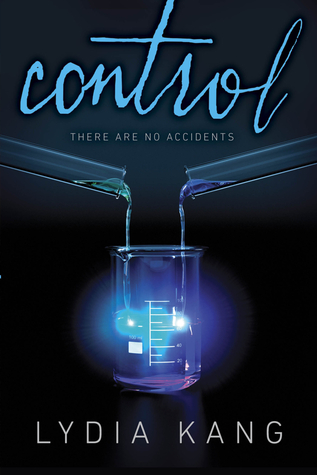

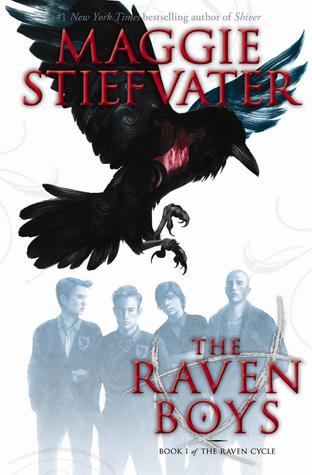

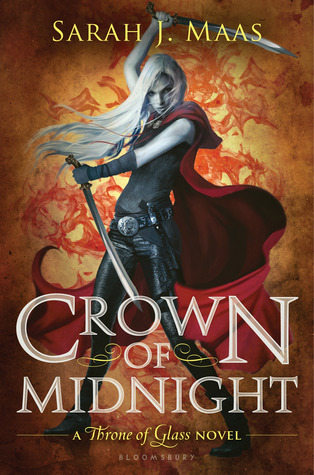



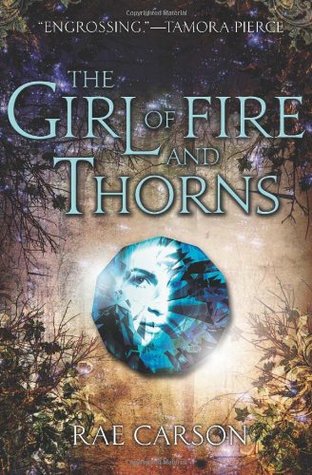









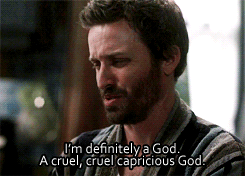










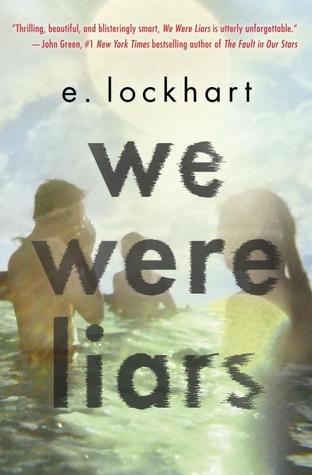
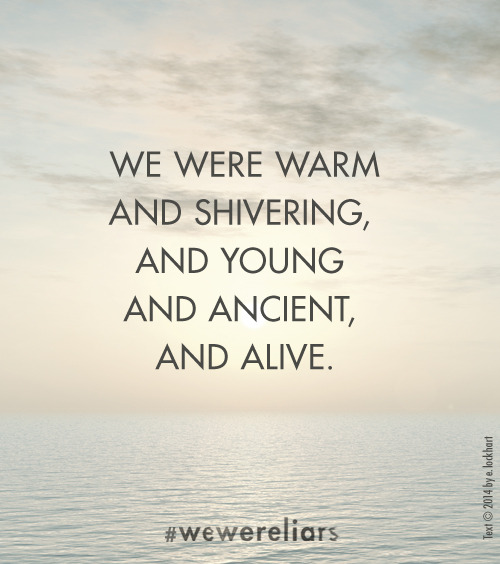











.JPG)






